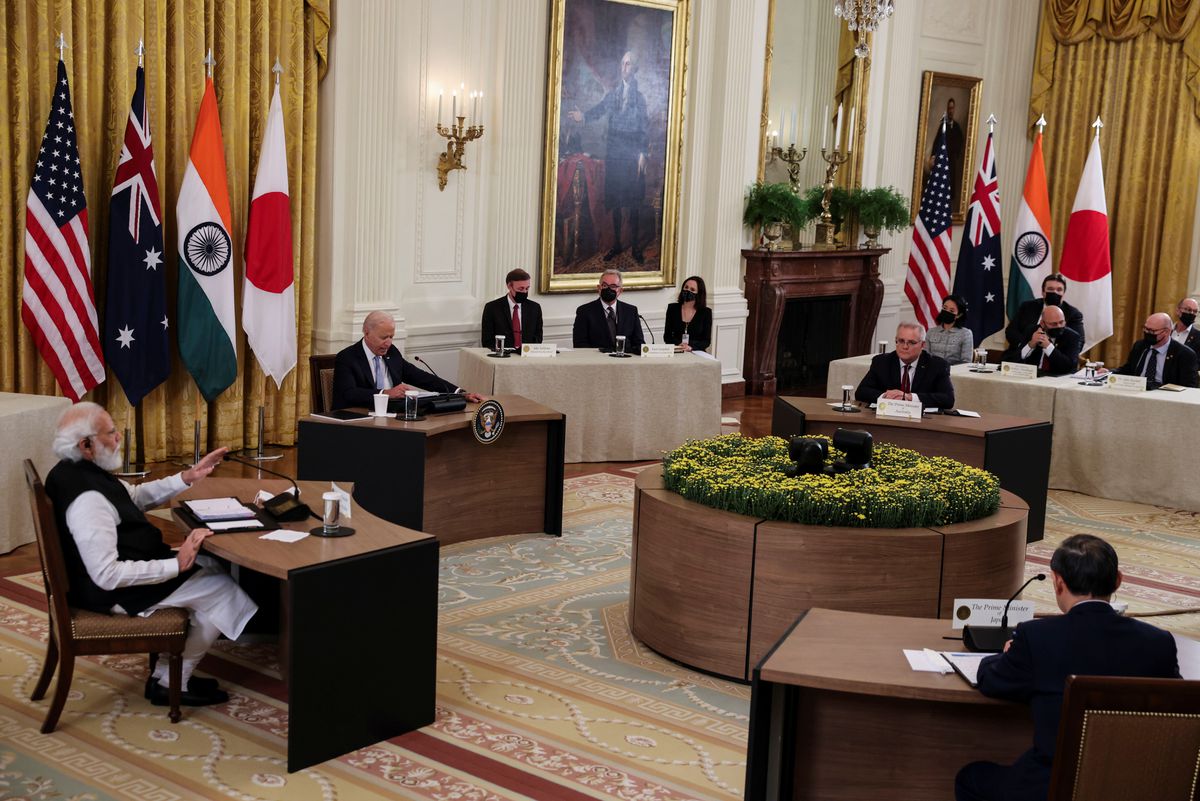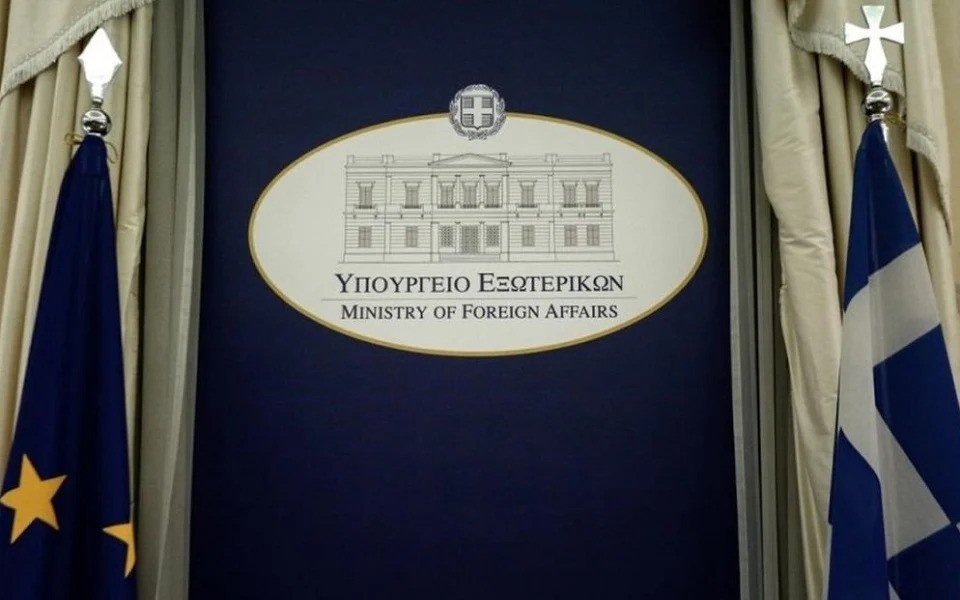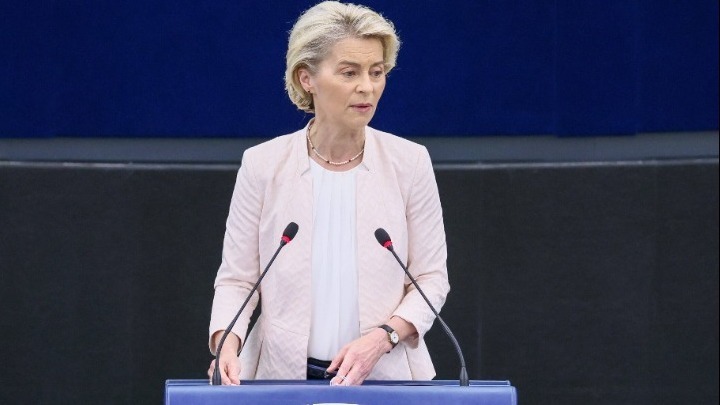Quad alliance set to strike vaccine and tech deals


Australia is expected to join with India, Japan and the United States in a partnership to provide COVID-19 vaccines to Indo-Pacific nations.
Prime Minister Scott Morrison is meeting with US President Joe Biden, Japan’s Yoshihide Suga and Indian leader Narendra Modi for the first face-to-face meeting of Quadrilateral Security Dialogue at the White House.
Since the last online meeting of Quad leaders in March, officials have been working on the details of a vaccine deal that would provide as many as a billion doses across the region.
There are also expected to be announcements in the areas of emissions reduction technologies, space cooperation, cyber security, scholarships for science students and secure semiconductor supply chains.
However, the elephant in the room will be what officials describe as the “deteriorating strategic environment” – code for China’s massive military buildup and flexing of its influence in the region.
Speaking at the start of the meeting, Mr Morrison said the liberal democracies of Australia, the US, India and Japan believe in a world order that favours freedom.
“So we stand here together in the Indo-Pacific region, a region that we wish to be always free from coercion, where the sovereign rights of all nations are respected and where disputes are settled peacefully in accordance with international law,” he said.
“We come together in collective strength with mutual respect, transparently, and, importantly, as one.”
Mr Biden is seeking to pivot US foreign policy towards the Indo-Pacific in the face of China’s coercive economic practices and unsettling military manoeuvring in the region.
Before the summit, the Japanese and Indian governments welcomed a recent announcement that the US, as part of the AUKUS alliance with Britain and Australia, would equip Australia with nuclear-powered submarines.
It is a move that will allow Australia to conduct longer patrols and give it an edge on the Chinese navy.
Peking University’s Professor Han Hua wrote in an op-ed piece for the China Daily the Quad and AUKUS would destabilise the region.
“Security groupings or alliances might have served some purpose during the Cold War era, but they don’t have any use in today’s globalised world where no issue can be solved by one country or security grouping alone,” he wrote.
“Cooperation, rather than strategic competition, is the only way countries can meet the challenges facing the world, including climate change and the COVID-19 pandemic.”
He said security groupings would inevitably prompt “rival” groupings to engage in an arms race to ensure their survival and security.
Source: sbs.com.au




